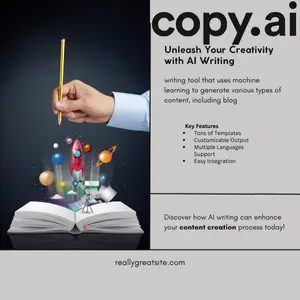
Tygra
Discover how Tygra, an AI-driven document processing platform, can transform unstructured data into actionable insights with unparalleled accuracy and custom schemas.
Description
Tygra: The AI Document Processing Game Changer? Let’s Find Out!
Okay, folks, let’s dive into the world of Tygra! Imagine a world where you no longer dread sifting through piles of unstructured documents. Sounds good, right? Well, that’s where Tygra steps in. This AI-powered platform is designed to transform those chaotic documents into useful, actionable insights. It’s like having a super-efficient, tireless assistant dedicated to parsing and validating even the most complex documents. Think of it as the ultimate document whisperer, leveraging advanced machine learning models and traditional OCR techniques to understand and extract the content that truly matters to your business. What sets Tygra apart is its ability to let you define custom schemas, ensuring precise extraction tailored to your specific needs. In essence, Tygra aims to eliminate the headache of manual document processing, freeing you up to focus on more strategic, high-value tasks. But does it live up to the hype? Let’s explore!
Key Features and Benefits of Tygra
Tygra comes packed with features designed to make document processing a breeze. Here’s a rundown of some of the top features and the benefits they offer:
- Customizable Schemas: Define exactly what information you need to extract from your documents. This ensures you get precise and relevant data, avoiding unnecessary clutter.
- AI-Driven Parsing: Tygra uses a combination of advanced machine learning and OCR to accurately parse and understand complex documents, even those with varying layouts and formats.
- Pre-trained Models: Leverage over 50 pre-trained models tailored for specific industries like finance, logistics, and insurance. This means you can hit the ground running without needing to train the AI from scratch.
- LLMs and Vision Models: Utilizing Large Language Models (LLMs) and vision models allows Tygra to not only read the text but also understand the context and visual elements within the documents.
- Validation Capabilities: Tygra doesn’t just extract data; it also validates it, ensuring accuracy and reducing the risk of errors in your insights.
How Tygra Works (Simplified)
Using Tygra is surprisingly straightforward. First, you upload your unstructured documents to the platform. Next, you define a custom schema or choose from one of the pre-trained models to specify what data you want to extract. Tygra then uses its AI-powered engine to parse and analyze the documents, extracting the relevant information according to your schema. Finally, the extracted data is presented in a structured format, ready for you to use in your analysis or workflows. The beauty of Tygra is its ability to automate this entire process, saving you significant time and effort compared to manual methods. It handles the heavy lifting, so you can focus on interpreting the insights and making informed decisions. The platform’s intuitive interface makes it easy to navigate, even for users who aren’t AI experts. It really feels like they’ve designed it with usability in mind, which is a huge plus.
Real-World Use Cases for Tygra
I’ve been exploring Tygra and here are a few ways I see it making a real difference:
- Invoice Processing: Imagine you’re drowning in invoices. Tygra can automatically extract key details like invoice number, date, amount, and vendor information. This data can then be seamlessly integrated into your accounting system, streamlining your accounts payable process. It’s a massive time-saver and reduces the risk of manual data entry errors.
- Contract Analysis: Dealing with complex contracts? Tygra can identify crucial clauses, dates, and obligations, helping you quickly understand the terms and conditions. This is invaluable for legal teams and anyone involved in contract management.
- Insurance Claims: Processing insurance claims involves tons of paperwork. Tygra can automate the extraction of relevant data from claim forms, medical reports, and other supporting documents, accelerating the claims processing cycle and improving customer satisfaction.
- Logistics Documentation: In the logistics industry, there’s a constant flow of documents like bills of lading and customs declarations. Tygra can extract key information from these documents, enabling better tracking, faster processing, and improved supply chain visibility.
Pros of Tygra
Here are some of the things I really liked about Tygra:
- Unparalleled Accuracy: The AI-driven parsing and validation ensure a high level of accuracy in data extraction.
- Time Savings: Automating document processing can save significant time and reduce manual effort.
- Customizable Schemas: The ability to define custom schemas allows you to tailor the data extraction to your specific needs.
- Pre-trained Models: The availability of pre-trained models speeds up the implementation process and delivers immediate value.
- User-Friendly Interface: The platform is easy to navigate and use, even for non-technical users.
Cons of Using Tygra
While Tygra has a lot going for it, there are a few potential downsides to consider:
- Complexity of Initial Setup: Defining custom schemas can be complex, especially for users without prior experience in data extraction.
- Potential for Errors: While Tygra aims for high accuracy, there’s always a potential for errors, particularly with poorly formatted or low-quality documents.
- Cost: Depending on your usage, the pricing may be a barrier for smaller businesses or individual users.
Tygra Pricing
Unfortunately, specific pricing details were not readily available in the search results. It’s best to visit the Tygra website (tygra.ai) directly to get the most up-to-date information on pricing plans and options.
Conclusion
In conclusion, Tygra appears to be a powerful AI-driven document processing platform that can significantly improve efficiency and accuracy. Its ability to parse complex documents, validate data, and allow for custom schemas makes it a valuable tool for businesses of all sizes. If you’re struggling with manual document processing and looking for a way to automate your workflows, Tygra is definitely worth considering. While the initial setup might require some effort, the long-term benefits in terms of time savings and improved data accuracy could be substantial. I’d recommend Tygra to businesses dealing with high volumes of documents, such as those in finance, insurance, logistics, and legal sectors. It’s also a great fit for teams looking to streamline their accounts payable, contract management, or claims processing workflows. Give it a try and see if it transforms your document chaos into structured, actionable insights!





Reviews
There are no reviews yet.